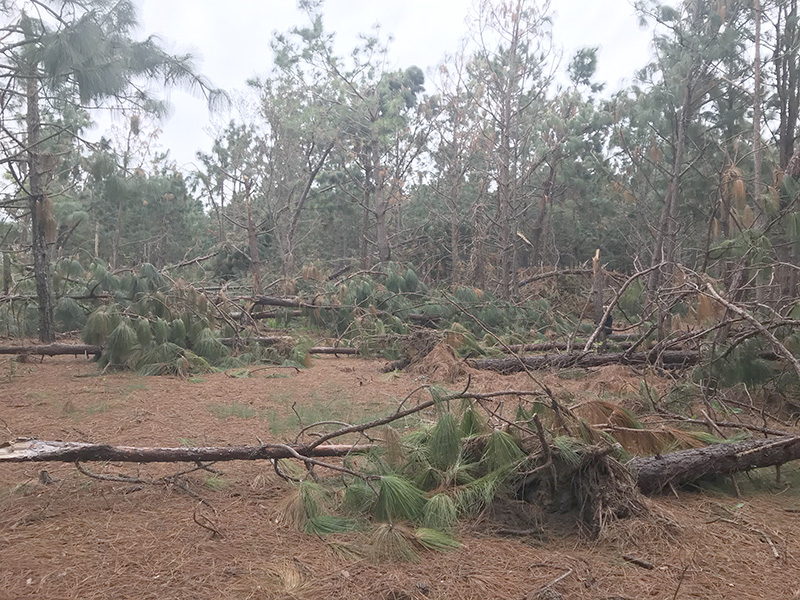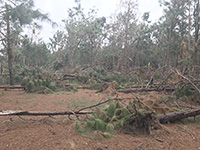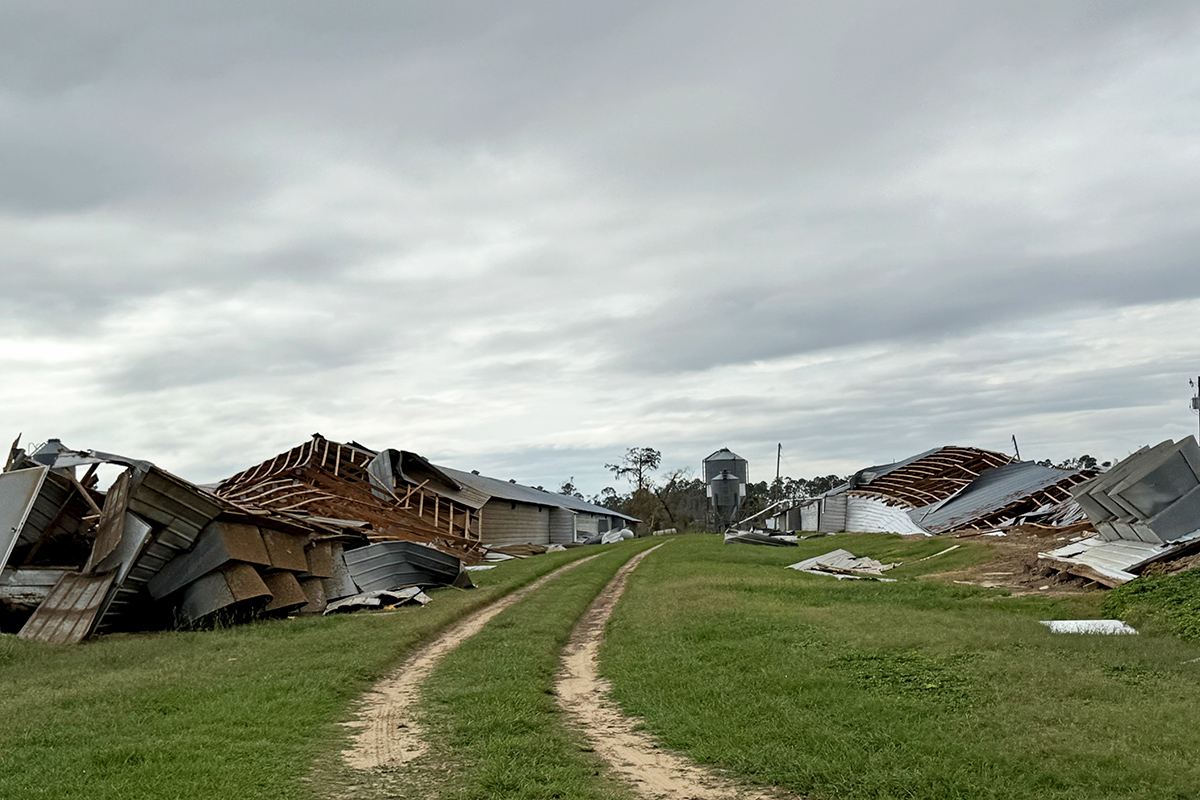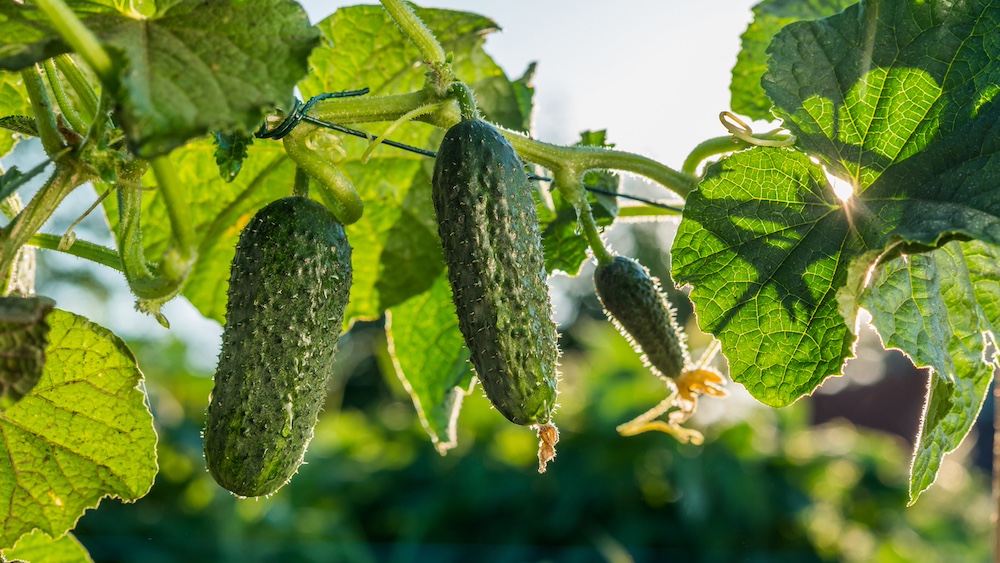The Georgia Forestry Commission estimates that 2.4 million acres of timber were damaged by Hurricane Michael. This equates to $763 million in direct losses.
In Georgia, 300,000 acres, or approximately 16 percent of the state’s timber, were classified as being catastrophically damaged. An estimated 1.4 million acres or 61 percent were deemed moderately damaged. As of now, there are an estimated 37.68 million tons of timber on the ground. Now comes the hard part — salvaging what’s left.
It's best not to salvage moderately damaged tree stands right away. The timber market was already flooded before Hurricane Michael. In a 75-mile radius around Bainbridge, Georgia, where Hurricane Michael struck on Oct. 10, mills consume 12 million green tons per year. There are 18 million green tons on the ground in that same area.
Given market conditions, growers are in no rush to salvage moderately damaged stands. Also, with temperatures getting colder and dropping below 40 degrees, a potential frost will slow bark beetles, a common pest. Producers only need to salvage in severe and catastrophic cases.
University of Georgia Cooperative Extension offers a few tips to consider when assessing timber after storms:
When salvaging, pay more attention to what is still standing than what is on the ground.
- Uprooted, large pines tend to stay green until spring (March-April) of the following year. There is about a 5- to 6-month window for high-value uprooted wood.
- When tops break off of trees, at least three live branches are needed for trees to live. The trees may grow slower than a full crown.
- The smaller the tree, the more likely it is to straighten back up. Trees with more than a 60-degree lean will most likely not straighten back up.
Assessing your timber damage is critical to saving time and money. Timber is a valuable industry in Georgia. According to the UGA Center for Agribusiness and Economic Development, timber generated $681 million in farm gate value in 2016. For guidance on how best to salvage timber, contact your local Extension agent at 1-800-ASK-UGA1.








